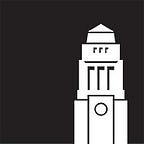System mapping fair energy futures
The inception of the Fair Energy Futures research community in September stemmed from the realisation that the University of Leeds boasts a wealth of expertise across a huge range of disciplines, including Engineering, Art, English, Computing, Biology, and Law. Despite this wealth of knowledge, there was a lack of a central community to bring together these diverse fields and their critical contributions.
The initial 62 members surprised us with the breadth and diversity of topics they represented. Consequently, the kick-off workshop sought to harness this diversity, exploring unexpected connections, collaborations, and conflicts within the realm of fair energy futures.
A pivotal aspect of the workshop involved a system mapping exercise in which participants delved into how their research aligns with the concept of fair energy futures. They identified necessary conditions for success and contemplated potential barriers. Additionally, they probed into how their work could inadvertently contribute to unfairness, exacerbating inequalities or environmental issues.
Tables of participants uncovered commonalities and disparities in their research questions and topics. The exercise prompted them to map out how their distinct research areas could collectively contribute to the larger puzzle. They pinpointed areas for potential collaboration, identified conflict, and, crucially, highlighted unexpected intersections. This process was a joint exploration of how their diverse backgrounds, methodologies, and expertise could collaboratively address the shared challenges of fair energy futures.
One table talked about the increase in electric mobility. It was great to have input from a range of people, representing both different disciplines and different life backgrounds. Saikat Dutta, an engineer, talked about the differences between India and UK in introducing electric mobility, and the likelihood of hybrid mobility being necessary in India due to a limited electricity grid. Noel Cass, from the Institute of Transport Studies, is coming to the end of a study on electric cargo bikes, and he talked about how difficult it was to reach participants that are not already relatively wealthy. Jan Selby, from POLIS, raised the international political issues associated with materials supply chains for electric vehicles, and the unexpected inequalities that might arise as a consequence of demand for materials.
The outcomes of this mapping exercise are presently undergoing analysis and will shape the focus of the research themes defining the future initiatives of Fair Energy Futures. With each progressive step, the community is committed to refining its approach, bolstering its capacity to advocate for equitable energy transitions.
Thanks to Richard Oduro for this write up.
Visit the Fair Energy Futures website for more information, and follow us on X @EnergyLeeds #FairEnergyFutures
